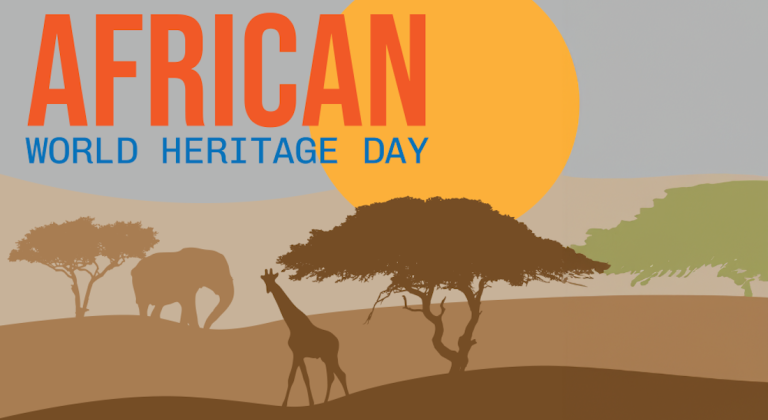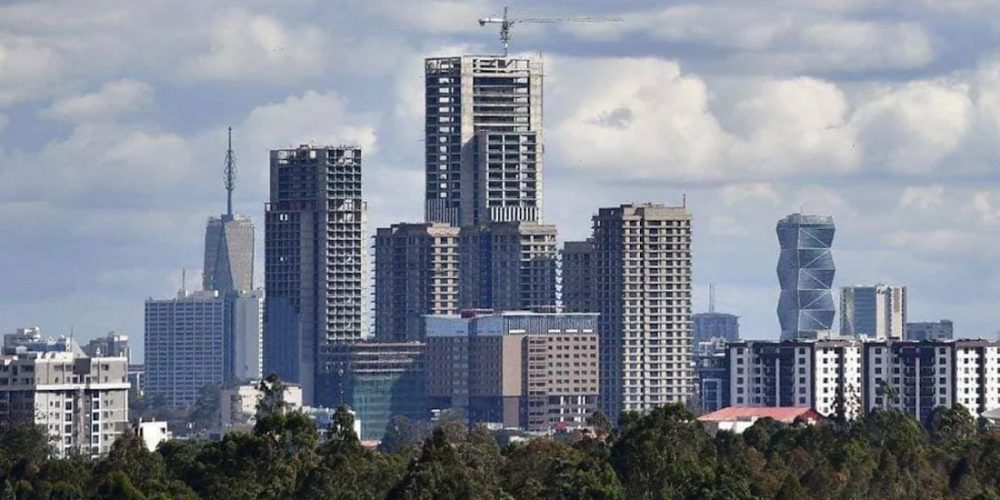
UNESCO Spotlights Preservation Efforts as Climate Change, Funding Gaps Threaten Africa’s 147 World Heritage Sites
New York, N.Y. – On May 5, nations across Africa and the globe marked African World Heritage Day, an annual observance dedicated to celebrating the continent’s unparalleled cultural and natural heritage while addressing urgent preservation challenges.

Established in 2015 by UNESCO (U.N. Educational, Scientific & Cultural Organization), the day underscores Africa’s 147 World Heritage Sites—12% of the global total—and advocates for sustainable stewardship amid growing threats like climate change, urbanization, and political instability.
Origins and Global Recognition
African World Heritage Day emerged from a 2015 resolution by UNESCO’s General Conference to address the underrepresentation of African sites on the World Heritage List and amplify conservation efforts.
Despite Africa’s rich history, only 9% of its submitted sites
have been inscribed, compared to Europe’s 44%.
“This day is a call to rebalance the narrative,” said Lazare Eloundou Assomo, Director of UNESCO’s World Heritage Centre. “Africa’s heritage is a cornerstone of human history, yet it remains vulnerable.”
Notable sites include Ethiopia’s Rock-Hewn Churches of Lalibela, Kenya’s Lamu Old Town, and Botswana’s Okavango Delta. These landmarks face pressures from population growth, tourism mismanagement, and extreme weather. UNESCO’s 2023 report noted that 43% of Africa’s natural heritage sites are critically threatened by climate change.
Preservation Challenges and Community Efforts
Funding shortfalls and limited technical expertise hinder conservation. Less than 1% of international heritage funding reaches Africa, according to the African World Heritage Fund (AWHF). In conflict zones like Mali, sites such as Timbuktu have suffered deliberate destruction. Meanwhile, coastal heritage areas in Senegal and Tanzania are eroding due to rising sea levels.
Grassroots initiatives offer hope. In Ghana, local groups partner with UNESCO to restore Fortresses and Castles, relics of the transatlantic slave trade. Rwanda’s Nyungwe National Park employs community-led ecotourism to protect biodiversity while generating income. “Local ownership is key,” said AWHF Executive Director Souayibou Varissou. “When communities benefit, preservation becomes a shared mission.”
“Africa’s heritage is a cornerstone of human history, yet it remains vulnerable.”
Technology and Innovation in Conservation
Drones, 3D mapping, and AI are revolutionizing preservation. In 2023, South Africa’s Robben Island Museum launched a virtual reality tour to broaden access. Tanzania’s Kondoa Rock-Art Sites use satellite monitoring to combat illegal logging. “Technology bridges gaps in resources,” said Kenyan archaeologist Zainab Hasan. “But it must complement, not replace, traditional knowledge.”
Calls for Global Collaboration
UNESCO urges increased funding and policy reforms. The World Heritage Convention’s 50th anniversary in 2022 highlighted the need for equitable partnerships. “Heritage preservation is not a luxury—it’s a lifeline for sustainable development,” said UNESCO Director-General Audrey Azoulay.
African World Heritage Day Marks Continent’s Legacy Amid Challenges (May 7, 2025)
#AfricanHeritageDay #PreserveOurPast
Tags: African World Heritage Day, UNESCO, cultural preservation, climate change, sustainable tourism
Social Media Blurbs
X (20-25 words):
African World Heritage Day Celebrates Continent’s Legacy Amid Challenges. #AfricanHeritageDay #Preservation
Explore: bit.ly/afriheritage24
Bluesky (25-30 words):
Today marks African World Heritage Day, honoring the continent’s cultural gems and urgent preservation needs. #AfricanHeritageDay #Conservation
Learn more: bit.ly/afriheritage24
LinkedIn (75-100 words):
African World Heritage Day Celebrates Continent’s Legacy Amid Challenges
As professionals, preserving cultural and natural heritage is critical to sustainable development and global equity. Africa’s 147 UNESCO sites face climate, funding, and geopolitical threats, yet offer lessons in resilience and innovation. How can industries support conservation through technology and ethical tourism? Join the discussion on balancing progress with preservation. #CulturalHeritage #SustainableDevelopment #Leadership
Full story: www.stewardshipreport.org/african-heritage-2024
Truth Social (40-50 words):
African World Heritage Day Celebrates Continent’s Legacy Amid Challenges. Explore UNESCO’s efforts to protect 147 sites from climate and conflict. #Preservation
Details: bit.ly/afriheritage24
Mastodon (50-60 words):
This #AfricanHeritageDay, discover how communities and tech are safeguarding Africa’s UNESCO sites against climate change and neglect. From Lalibela to the Okavango Delta, learn about challenges and triumphs. Join the conversation on preserving our shared history. #Conservation
Link: bit.ly/afriheritage24
Instagram (30-40 words):
Celebrate African World Heritage Day 🌍 Discover iconic sites, preservation stories, and how you can help. Swipe up to explore!
#AfricanHeritageDay #PreserveOurPast #TravelResponsibly #UNESCO #CulturalHeritage
Link in bio 🔗
Facebook (60-75 words):
African World Heritage Day Celebrates Continent’s Legacy Amid Challenges
From ancient rock art to biodiverse savannahs, Africa’s UNESCO sites face climate and funding threats. Learn how communities and innovators are fighting to preserve these treasures—and how you can help. #AfricanHeritageDay #Conservation
Full story: www.stewardshipreport.org/african-heritage-2024
Reddit (75-100 words):
How Can the Global Community Better Protect Africa’s Heritage Sites?
Africa’s 147 UNESCO sites face climate change, underfunding, and conflict. This African World Heritage Day, what strategies—tech, policy, tourism—would most effectively preserve these cultural and natural wonders? Share your insights. #Preservation
Link: bit.ly/afriheritage24